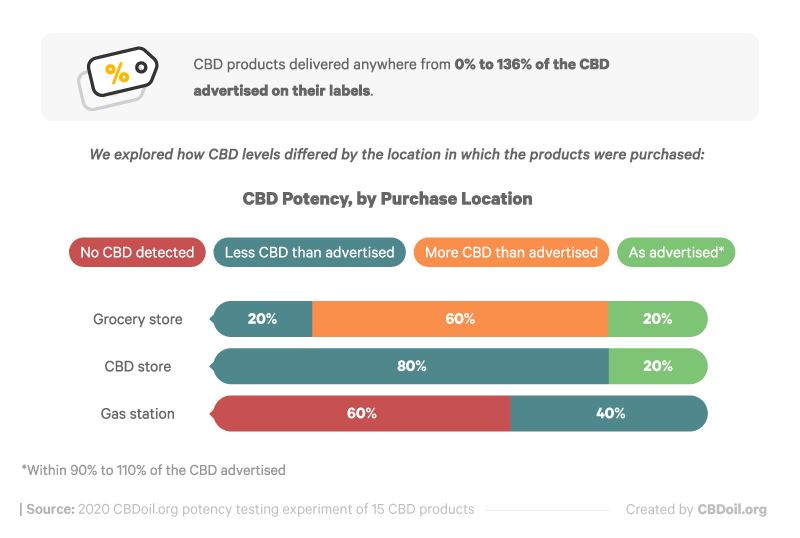
Cannabidiol (CBD) is a rather new product in the American marketplace, which has left it somewhat unregulated. The federal government is attempting to catch up but, until then, CBD manufacturers will basically be producing and labeling their CBD however they desire.
New research by CBD Awareness Project revealed some unsettling news regarding CBD products being sold at stores.
“According to our analysis, gas station CBD products delivered less CBD than was advertised on the label, including three CBD-infused beverages where no CBD was detected,” the researchers reported. “In contrast, CBD products purchased at grocery stores were found to have more CBD than their labels advertised: 136% of the CBD advertised on average. Products purchased at grocery stores were also found to be consistently more potent than those purchased at CBD-specific retail locations.”
They found that among CBD-infused drinks, 3 in 4 had no traces of CBD and another 1 in 4 had less CBD than labeled. Meanwhile, 3 in 4 edible CBD products had less CBD than advertised and another 25% had more traces of CBD than advertised. As for topical CBD products, 2 in 5 had as much CBD as indicated on the packaging and 1 in 5 had less CBD than indicated.
The CBD market is expected to grow approximately 32% in the next five years to $1.2 billion annually.

 New Mexico Marijuana News and Info New Mexico Marijuana News and Info
New Mexico Marijuana News and Info New Mexico Marijuana News and Info





